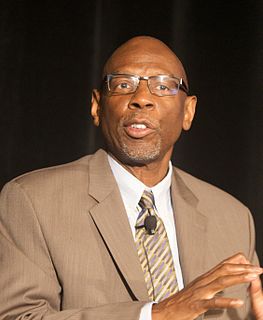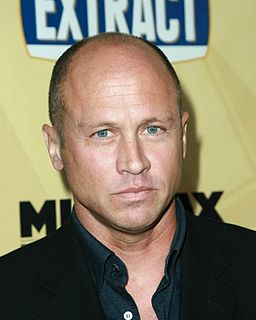A Quote by Henry Rollins
I just work, to the exclusion of most other things. I rarely work in a frenzied manner, just kind of - if you take the beater that whips the icing or the eggs into shape - on the upper end of medium speed, that's kind of how I am about seven days a week.
Related Quotes
There are things that I am passionate about, whether it's the season or just kind sort of what is necessary for culture. I like the idea that I can shape the culture in any shape or form that I can in whatever topic. But a lot of times, for me, it is about representing "the other," whoever "the other" is.
When the news is slow, or when there's just so many other responsibilities bearing down on me that I don't have the time to do it right, that's when it gets frustrating. As an artist, you just don't wanna put bad work out. So when you have to do it seven days a week, you're just gonna have some bad days and bad weeks and bad months and bad years.
I would have done anything. I just really love the Duplass brothers. I was at a place where I was desperate for good writing. It wasn't the part that attracted me to it; it was just to be able to work with them. And the fact that she's this kind of, like, loose cannon and this kind of desperate 40-year-old is just the icing on the cake.
I had identified discipline as a really important part of my life, in maintaining my sanity. It's kind of interesting when people don't know me and then get to know me and see just how workaholic I am and how unhappy I am when I don't have something to work on, or if I am not provided with the tools to be able to accomplish those things, like touring without my looping rig or without a piano, I'm just kind of like, 'Aahhh, what do I do with my day?' To me, that's just a large part of my sanity.
I work out most days, normally first thing, and then I just see where the day takes me. I recipe test most days, do lots of social media and emails, but nothing else is constant. Some days, I film YouTube videos; other days, I have lots of meetings, work on blog posts, brainstorm ideas, and work on upcoming projects.
The thing about theater that always and still kind of makes me edgy is that you work and work and work and work, and then you're just in performance mode, and then you have to just be on; the work is done, and then you just have to do it over and over again, so you're just constantly at that performance level.
Work begets work. Just work. If you work, people will find out about you and want to work with you if you're good. So work anywhere you can. That's why I've changed my mind about these theatres where people work for free or have to pay money. I think it's kind of terrible that they feel they have to, but you know what? They're working.
It's tempting to think, 'This is silly. I'm an artist. I care about my work, my work is first. I don't care about what kind of dress I wear... That's so secondary to me.' But if you care about your work... then you need to take this part of it just as seriously as you would going into an audition and going into work.
It kind of hit me at some point during the process that most people in the film business - not just the executives, the people who make them, too - tend to come from pretty upper-class backgrounds. If they go work a job, it's to have that experience, that sort of thing. After they graduate college, they have time to go visit Europe and take some time off and get their heads together. That kind of thing, I sure didn't have.
We have a habit in writing articles published in scientific journals to make the work as finished as possible, to cover up all the tracks, to not worry about the blind alleys or describe how you had the wrong idea first, and so on. So there isn't any place to publish, in a dignified manner, what you actually did in order to get to do the work, although, there has been in these days, some interest in this kind of thing.




































